Indigenous Governance Database
IGD Database Search
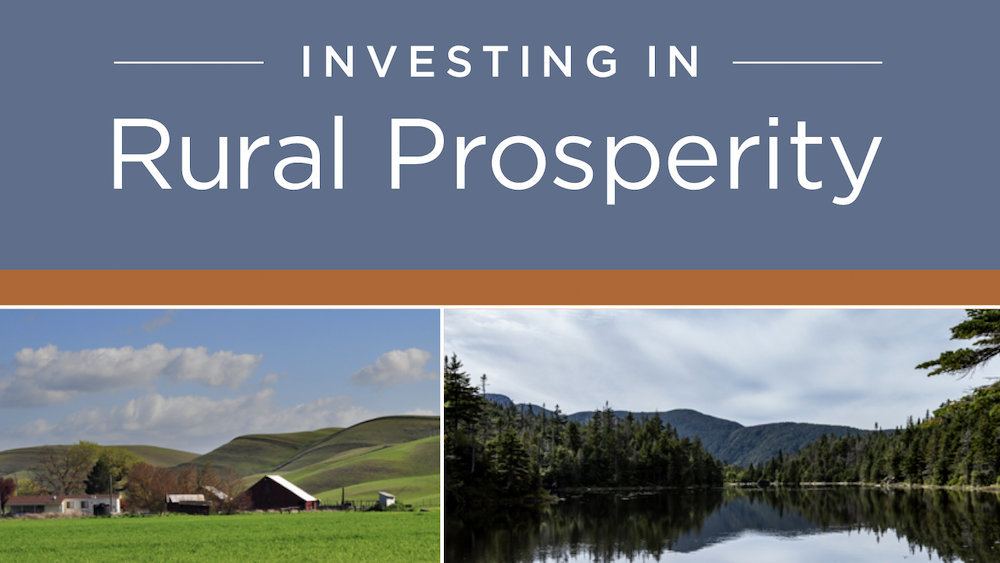
Investing in Rural Prosperity Chapter 7: Native America x Rural America: Tribal Nations as Key Players in Regional Rural Economies
The seventh chapter in Investing in Rural Prosperity, "Native America x Rural America: Tribal Nations as Key Players in Regional Rural Economies", outlines the diversity of Native nations, including with respect to governmental structure and economic opportunity. It also explores the history and…
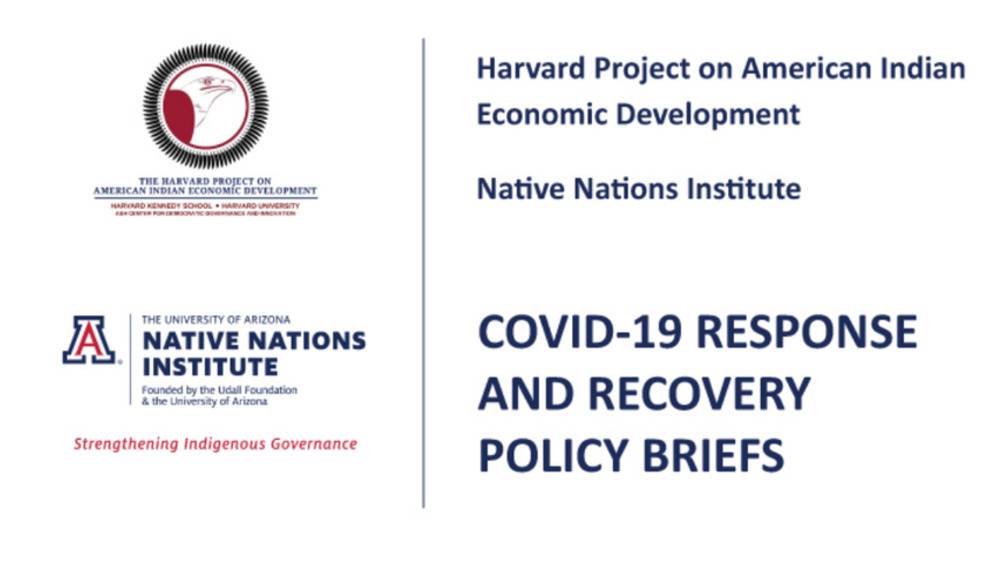
Policy Brief: Assessing the U.S. Treasury Department’s Allocations of Funding for Tribal Governments under the American Rescue Plan Act of 2021
The American Rescue Plan Act of 2021 (“the Act” or “ARPA”) has resulted in the single largest infusion of federal funding for Native America in U.S. history. The core of this funding is $20 billion for the more than 570 federally recognized American Indian and Alaska Native tribal…
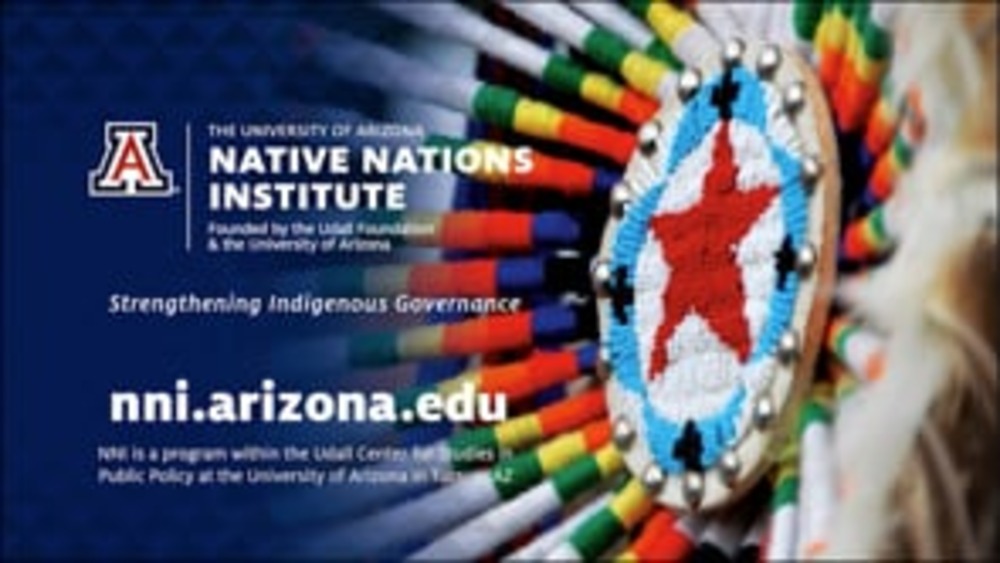
Return of the Red Lake Walleye (Ogaag bii azhe giiwewag)
The Native Nations Institute's film "Return of the Red Lake Walleye" is a 30-minute documentary that tells a compelling story of tribal sovereignty in practice. It chronicles the extraordinary effort of the Red Lake Band of Chippewa Indians -- working together with the State of Minnesota and the…
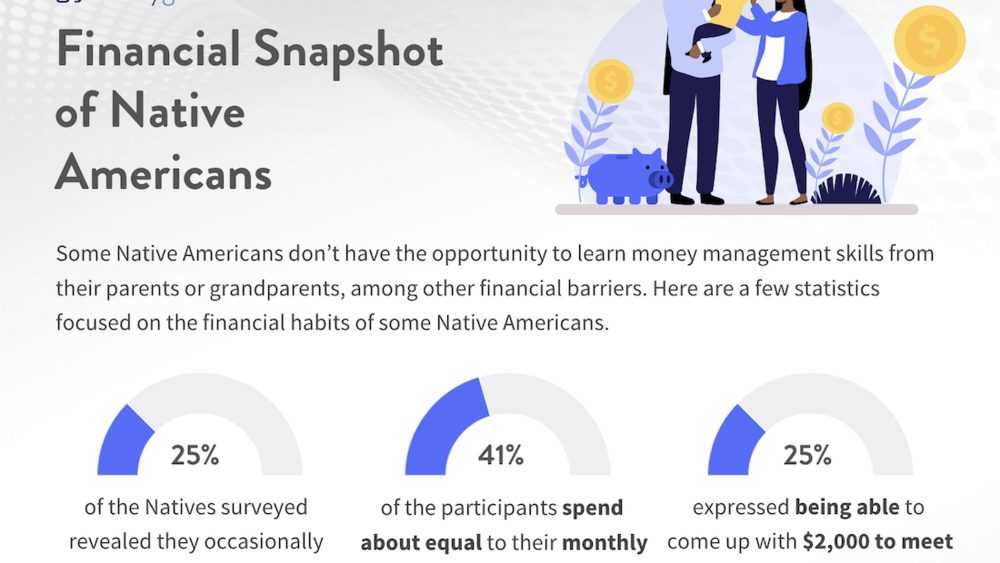
Strengthening Financial Avenues in Native American Communities
Historically, Native communities defined currencies by their food, relationships, nature and tools to sustain a living. Over time, Native and Indigenous populations gave way to the use of paper money. These new social standards pushed them to adopt different ways to sustain their living, often,…
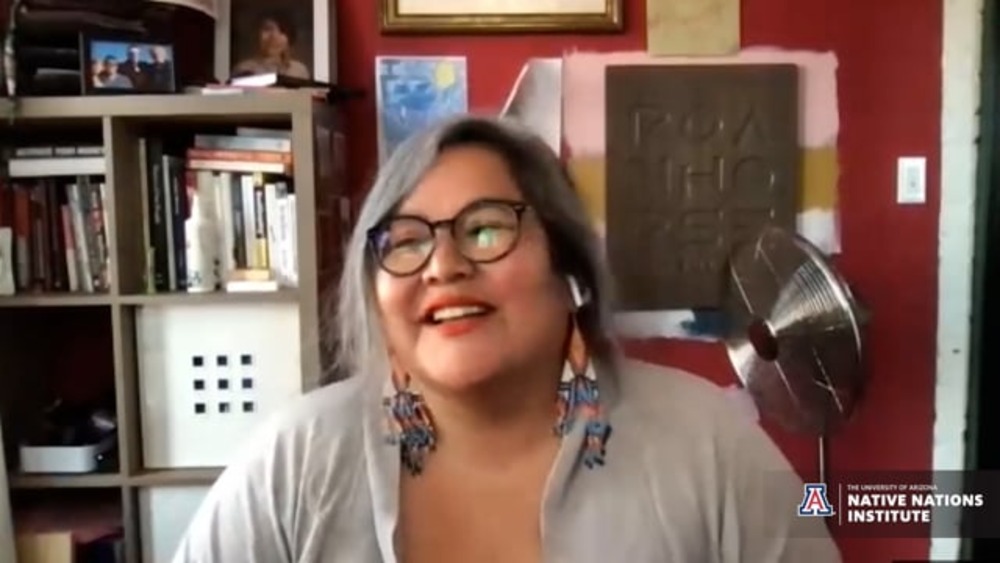
Vanessa Roanhorse Keynote Address: Native American Youth Entrepreneurship Program 2021
Vanessa Roanhorse (Navajo) is the CEO of Roanhorse Consulting, an Indigenous women-led think tank that co-designs wealth and power-building efforts that invest in Indigenous entrepreneurs. She is also the co-founder of Native Women Lead, a national organization dedicated to growing Native women…
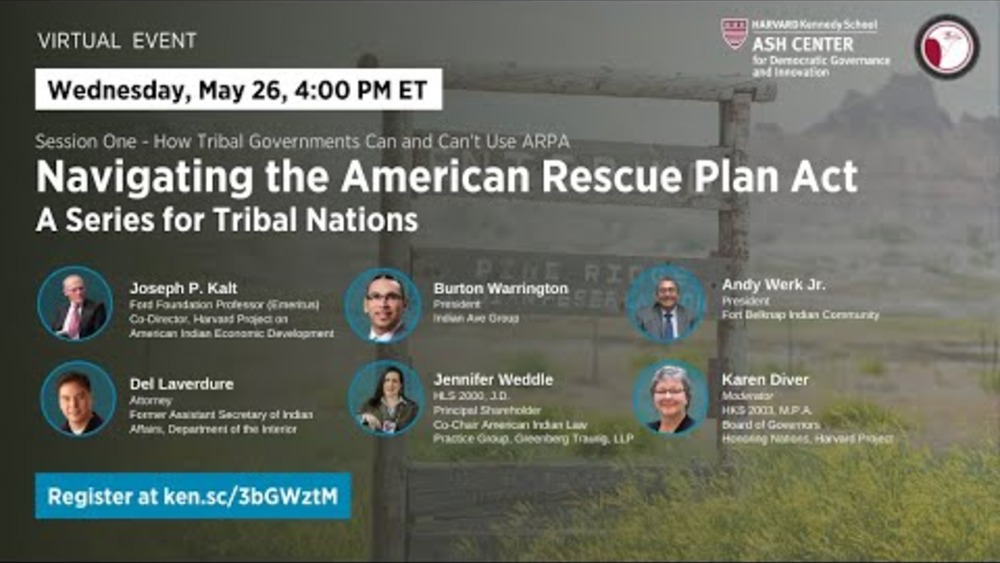
Navigating the ARPA: A Series for Tribal Nations. Episode 1: How Tribal Governments Can and Can't use ARPA
The American Rescue Plan Act (ARPA) provides the largest single infusion of federal funding into Indian Country in the history of the United States. More than $32 billion is directed toward assisting American Indian nations and communities as they work to end and recover from the devastating COVID-…
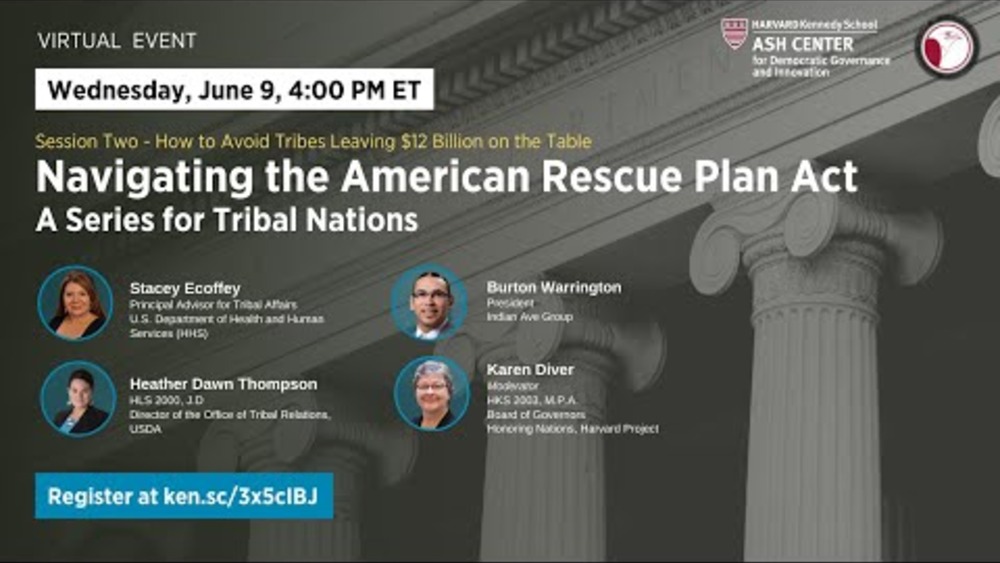
Navigating the ARPA: A Series for Tribal Nations. Episode 2: How Tribes Can Avoid Leaving $12 Billion on the Table
The American Rescue Plan Act (ARPA) provides the largest single infusion of federal funding into Indian Country in the history of the United States. More than $32 billion is directed toward assisting American Indian nations and communities as they work to end and recover from the devastating COVID-…
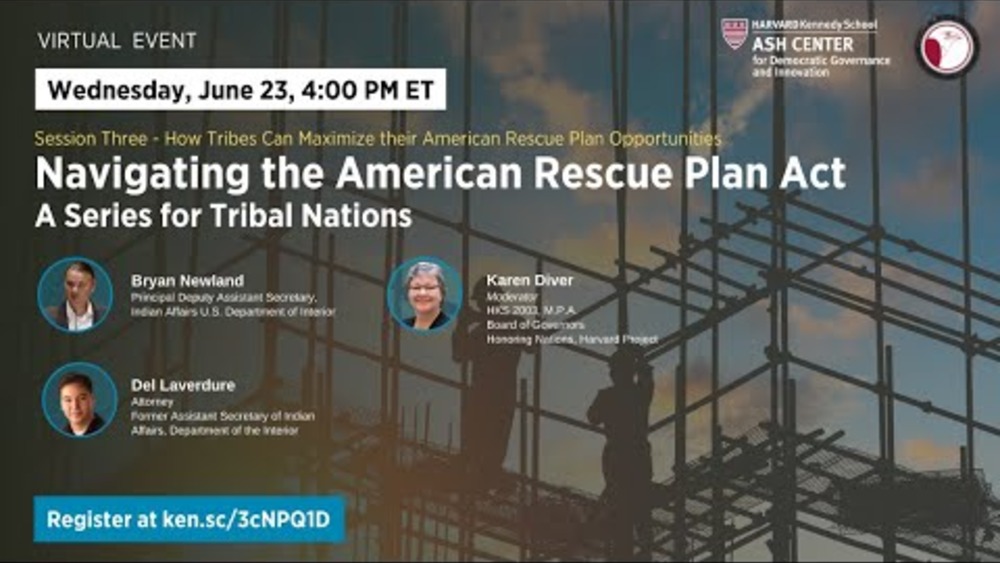
Navigating the ARPA: A Series for Tribal Nations. Episode 3: A Conversation with Bryan Newland - How Tribes Can Maximize their American Rescue Plan Opportunities
From setting tribal priorities, to building infrastructure, to managing and sustaining projects, the American Rescue Plan Act (ARPA) presents an unprecedented opportunity for the 574 federally recognized tribal nations to use their rights of sovereignty and self-government to strengthen their…
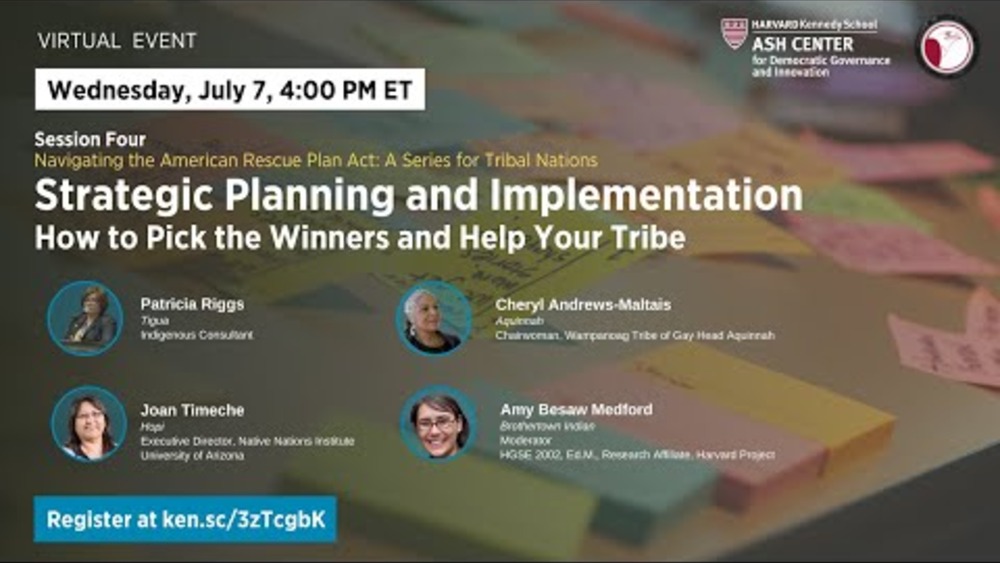
Navigating the ARPA: A Series for Tribal Nations. Episode 4: Strategic Planning and Implementation: How to Pick the Winners and Help Your Tribe
From setting tribal priorities, to building infrastructure, to managing and sustaining projects, the American Rescue Plan Act (ARPA) presents an unprecedented opportunity for the 574 federally recognized tribal nations to use their rights of sovereignty and self-government to strengthen their…
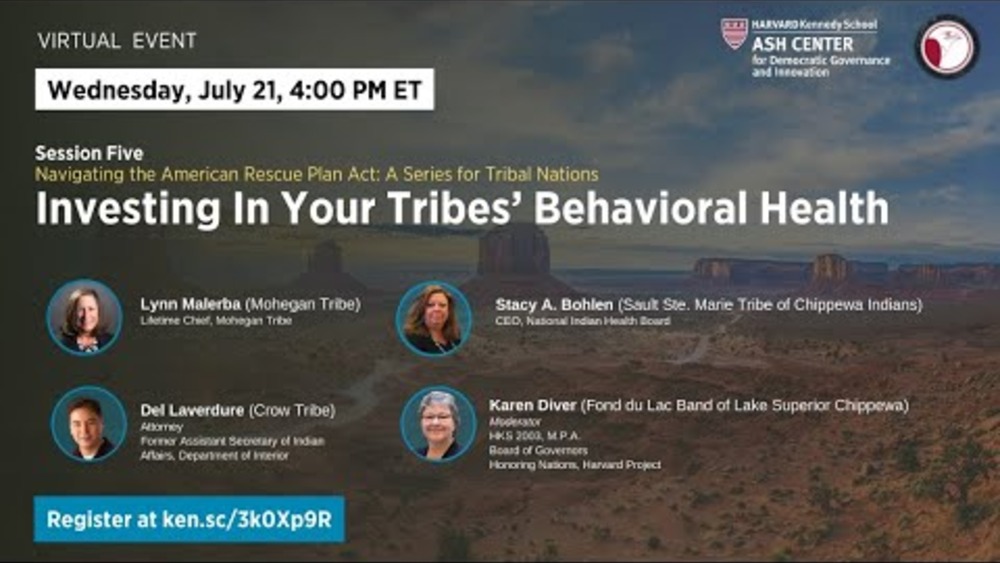
Navigating the ARPA: A Series for Tribal Nations. Episode 5: Investing in Your Tribes' Behavioral Health
From setting tribal priorities, to building infrastructure, to managing and sustaining projects, the American Rescue Plan Act (ARPA) presents an unprecedented opportunity for the 574 federally recognized tribal nations to use their rights of sovereignty and self-government to strengthen their…
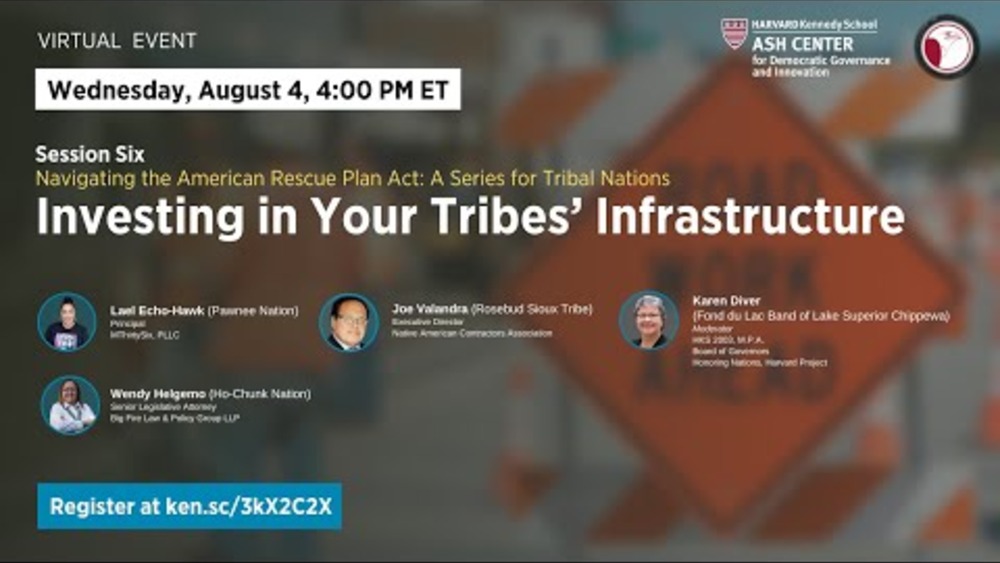
Navigating the ARPA: A Series for Tribal Nations. Episode 6: Investing in Your Tribes' Infrastructure
From setting tribal priorities, to building infrastructure, to managing and sustaining projects, the American Rescue Plan Act (ARPA) presents an unprecedented opportunity for the 574 federally recognized tribal nations to use their rights of sovereignty and self-government to strengthen their…
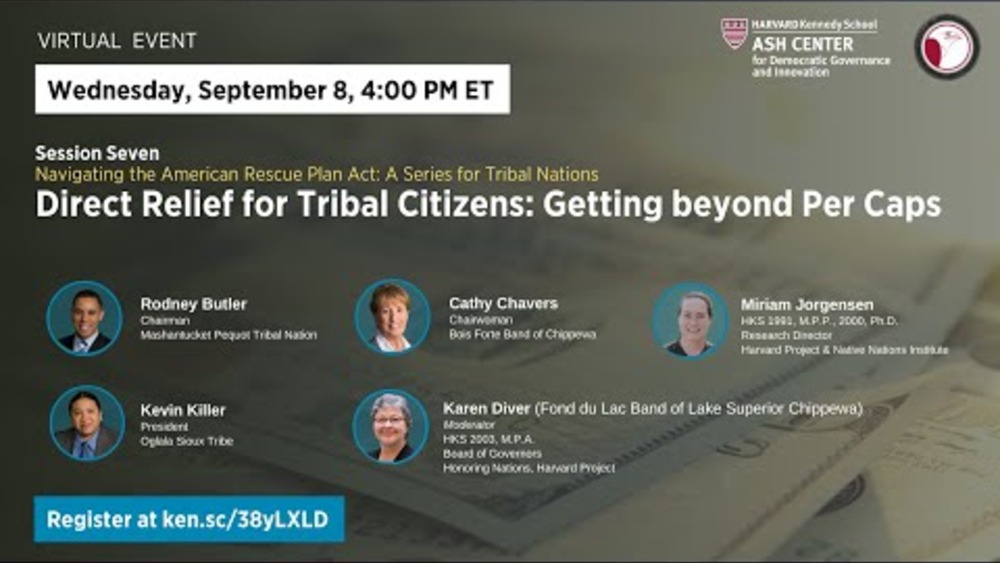
Navigating the ARPA: A Series for Tribal Nations. Episode 7: Direct Relief for Tribal Citizens: Getting beyond Per Caps
From setting tribal priorities to building infrastructure to managing and sustaining projects, the American Rescue Plan Act (ARPA) presents an unprecedented opportunity for the 574 federally recognized tribal nations to use their rights of sovereignty and self-government to strengthen their…
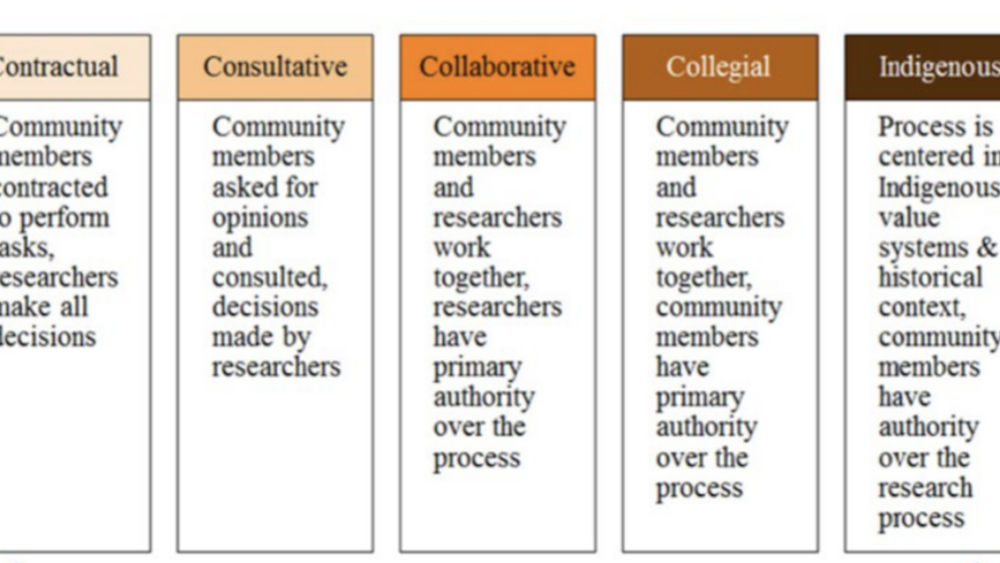
Relationships First and Always: A Guide to Collaborations with Indigenous Communities
Here in the U.S., we are in the midst of a great national reckoning. We have an extraordinary opportunity to acknowledge our roles in structural racism, reexamine biases, and engage in co-creating initiatives that honor the lives and livelihoods of Black, Indigenous, and People of Color. Every…
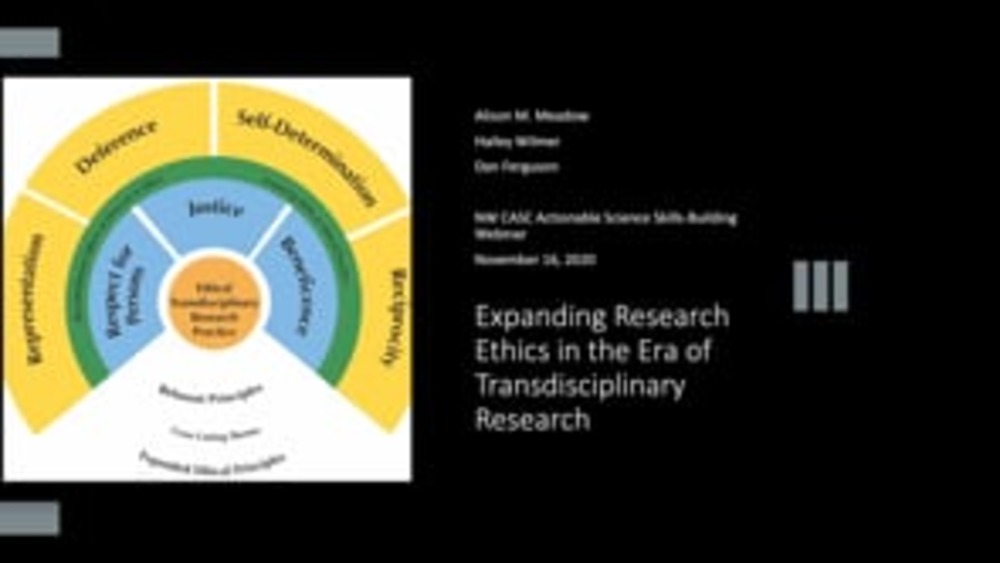
Improving Ethical Practice in Transdisciplinary Research Projects Webinar
Transdisciplinary research, or research conducted by people from different disciplines and organizations working together to solve a common problem, holds promise for communities and scientists seeking to address complex socio-ecological problems like climate change. However, this collaborative…
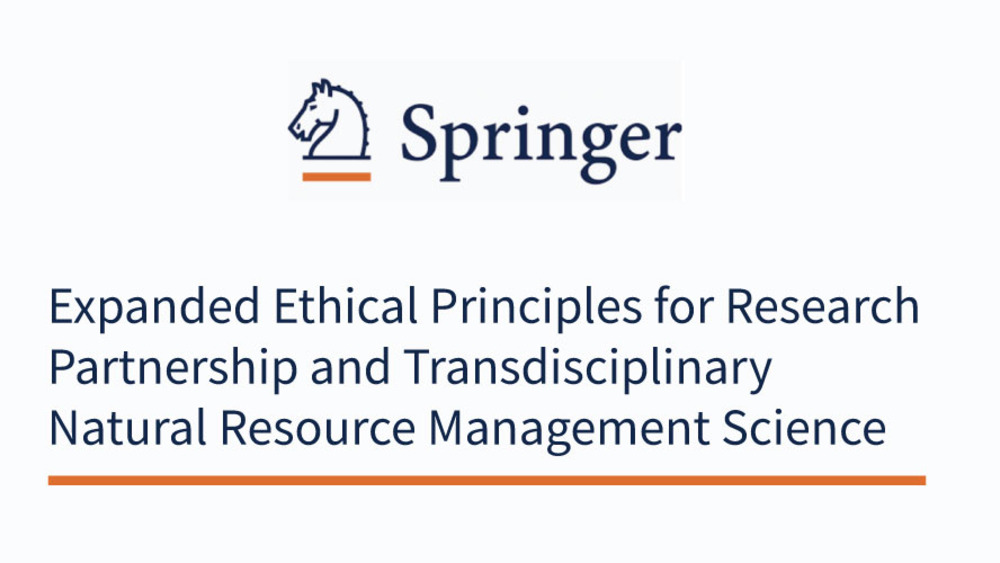
Expanded Ethical Principles for Research Partnership and Transdisciplinary Natural Resource Management Science
Natural resource researchers have long recognized the value of working closely with the managers and communities who depend on, steward, and impact ecosystems. These partnerships take various forms, including co-production and transdisciplinary research approaches, which integrate multiple…
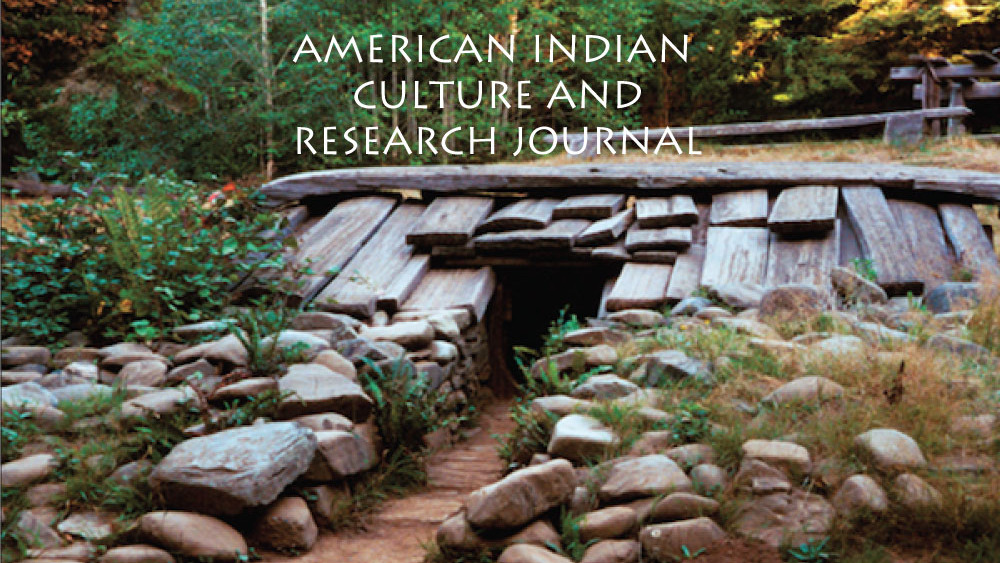
COVID-19 and Indigenous Peoples: Tools to Promote Equity and Best Practices
This is the second volume of a two-volume special issue of the American Indian Culture and Research Journal, volume 44.3, dedicated to the indirect impact of COVID-19 on Indigenous Peoples. The first volume (44.2) covers the degree to which Indigenous Peoples were affected by COVID-19 and how this…
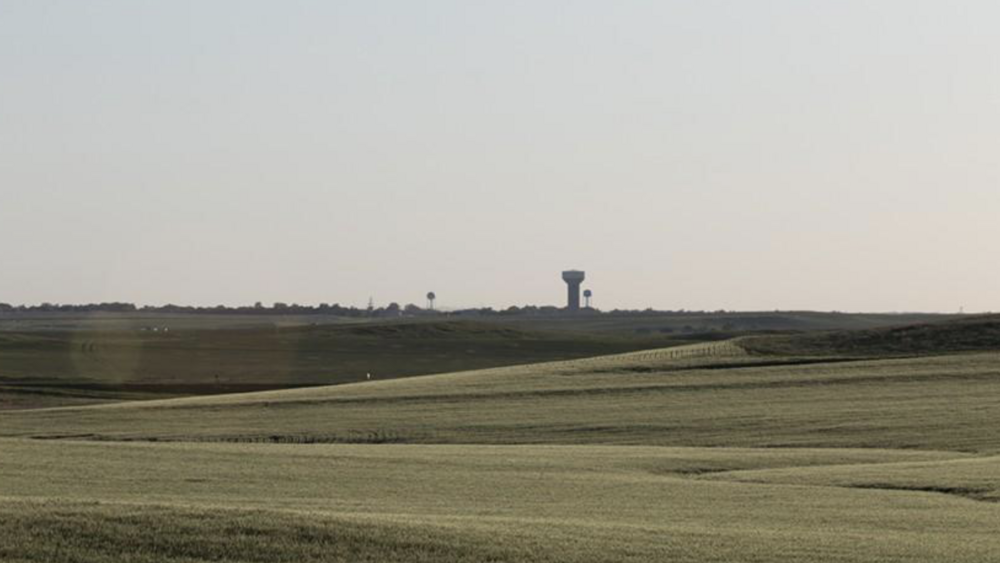
Bankshot Episode 46 Report: Ignored by banks, Indigenous communities build their own financial system
As seen from the air, the land is an expansive, grayish-brown terrain cracked open by the winding Missouri River with scattered clusters of black dots. On the ground, the dots become cows — so many cows — and the land becomes a roiling sea of prairie grass heaving under currents of wind you can see…
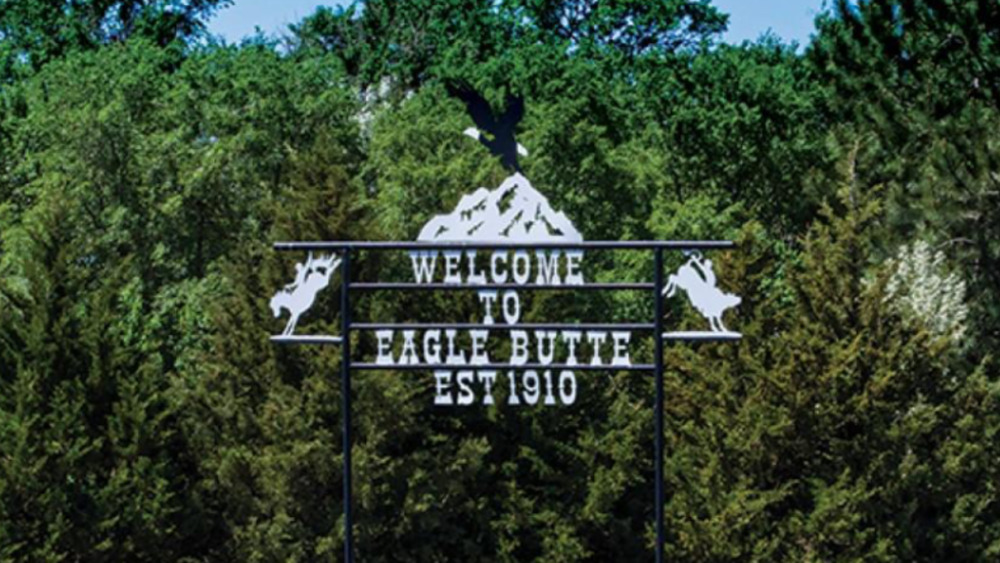
Bankshot Episode 46: Ignored by banks, Indigenous communities build their own financial system
EAGLE BUTTE, S.D. — The Cheyenne River Sioux Reservation is big, but it isn’t as big as it used to be. As seen from the air, the land is an expansive, grayish-brown terrain cracked open by the winding Missouri River with scattered clusters of black dots. On the ground, the dots become cows — so…

Post COVID-19 Implications for Genetic Diversity and Genomics Research & Innovation: A Call for Governance and Research Capacity
At a time of significant technological change and digitization in the biological sciences, the COVID-19 pandemic has highlighted again the inequities in the research and innovation ecosystem. Based on a consultation with an internationally diverse group of stakeholders from multiple fields and…

Honoring Nations All-Stars Profile: Tohono O’odham Nursing Care Authority
For many years, due to the Tohono O’odham Nation’s location in the Sonoran Desert of Arizona and the sparse population, Nation members did not have ac-cess to reservation-based long-term or post-hospital care services. This was particularly true for O’odham elders. Elders admitted to the Sells Area…
Pagination
- First page
- …
- 5
- 6
- 7
- …
- Last page
